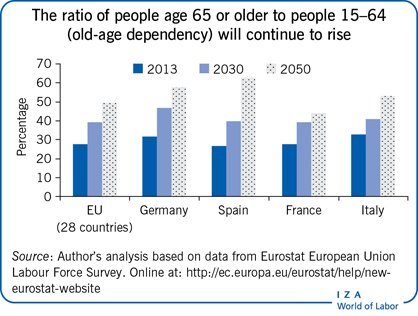Elevator pitch
The labor market position of older workers is cause for concern in many industrialized countries. Rapid population aging is challenging pension systems. The recent economic crisis has forced many older adults out of the workforce, into either pre-retirement or non-employment. Encouraging people to work longer and fostering the employability of older workers have become priorities for policymakers. Training specifically designed for older workers might help attain these goals, since it may refresh human capital and reduce the pay–productivity gap. Training older workers might also benefit employers and society as a whole.

Key findings
Pros
Training older workers might benefit individuals, employers, and society as a whole.
Research on learning in older adults indicates that they are able to acquire new skills.
Studies on the effectiveness of training on the employability and productivity of older workers find positive effects.
Training can avoid skill obsolescence and respond to the growing importance of technology-based occupations.
Subsidies for training of older workers might be a tool for increasing participation in training programs.
Cons
Older adults are slower, less effective, and more heterogeneous than younger people in learning new skills.
Training older adults might be ineffective if it does not meet their specific learning needs.
Older workers are less likely to participate in training and might thereby lose the opportunity to boost their employability.
Firms might fear low returns from training older workers, because of age-related stereotypes and shorter time to retirement.
Estimates of the relations between age and productivity, age and learning, and training and employability might be biased because they are based on non-experimental studies.